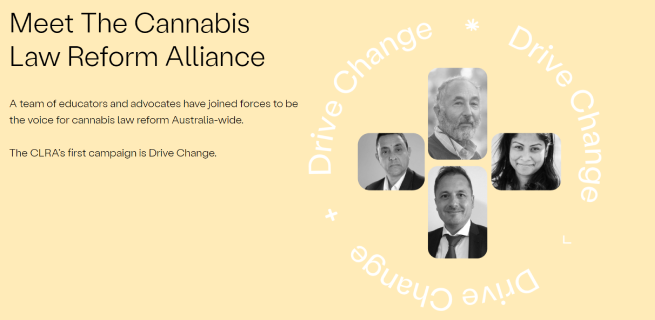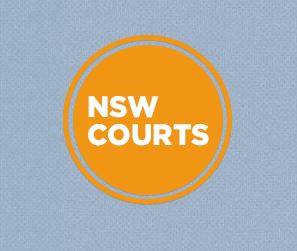By Paul Gregoire and Ugur Nedim
In a 4 July 2022 letter on drug driving laws, Drive Change campaign lead David Heilpern explained to NSW Labor MLC Chris Rath that when he was a NSW Magistrate, he’d sentenced “literally hundreds of defendants”, who were on cannabis medicine yet convicted over drug driving.
Indeed, part of the reason Heilpern gave up the gavel were unjust drug driving laws. And he provided key rulings made over his final half decade on the bench, in which defendants were found not guilty of cannabis driving based on the defence of honest and reasonable mistake of fact.
Rath made his inquiry as he was chairing a committee review of a bill tabled by NSW Greens MLC Cate Faerhmann relating to a medicinal cannabis driving defence, which involves those testing positive to cannabis driving whilst not impaired and using cannabis medicine not being found guilty.
The inquiry determined to debate the matter more, while currently, NSW Legalise Cannabis MLC Jeremy Buckingham has a medicinal cannabis driving reform bill before parliament, and these calls to reform the illegitimate 2007-established NSW drug driving regime go back much further.
A mid-2023 ruling, however, took the stark injustice of these laws and compounded it, as it found no defence of honest and reasonable mistake of fact available, meaning absolutely no excuses hold if charged with drug driving, and the NSW Court of Criminal Appeal confirmed this last month.
Nine days prior
A ruling that grabbed headlines, February 2016’s Police versus Joseph Carrall found a driver not guilty after testing positive for cannabis driving, as it was shown, on having smoked a joint nine days prior, he’d then waited over a week to drive again based on the advice of a traffic cop.
Carrall testified that a senior constable in May 2015 told him, on having tested positive for cannabis driving, that he considered that despite cannabis highs lasting only a number of hours, the drug can still be traced in a driver’s system for a number of days, so a week clear was fine.
Hence the injustice of drug driving laws. Random breath testing for alcohol indicates scientifically proven levels of the substance in a driver’s system. So, if drunk, they’re charged with drink driving, but once sober, an individual is fine to drive, and they will not test positive.
Yet, compared to the success of 1982 RBT laws, 2007’s drug driving regime is a travesty, as it tests for only four illicit substances – MDMA, amphetamines, THC from cannabis and cocaine – and only for their presence, which is why one can test positive when not intoxicated, especially with cannabis.
So, a driver high on heroin or legal benzodiazepines but visually unintoxicated in the opinion of an officer carrying out roadside drug testing, will test negative and be waved on to continue driving on the public road, while an unimpaired person who smoked cannabis the day prior may test positive.
Heilpern found Carrall guilty of drug driving on the first May offence but not the next month’s second charge, which was based on the defence of honest and reasonable mistake of fact.
The ruling not only reflected the injustice of NSW drug driving laws in regard to Carrall but also many wrongly convicted due to the nature of these laws in the past.
Skin deep
The second Heilpern ruling to buck the trend was 2017’s Police versus Sheree McKenzie, in which the driver accussed used medicinal cannabis, which she considers cured her cancer, and whilst occasionally smoking the substance, her main treatment was via a topical coconut cannabis cream.
Medicinal cannabis became legal in Australia in October 2016. McKenzie was charged with cannabis driving the April prior. Medicinal cannabis legalisation was progressed under the Turnbull government, as many Australians were already using the effective medicine while it was still banned.
“It is important to note that there need not be any affect proven – the mere presence of a minute or residual detectable level of this drug is sufficient,” Magistrate Heilpern made clear. “There is a separate offence of driving under the influence of a drug for which affect must be proven.”
Section 111 of the Road Transport Act 2013 (NSW) holds the crime of driving with the presence of certain drugs (other than alcohol) in oral fluid, blood or urine, which applies to the select drugs. A first offence carries a 3-month licence cancelation and a $572 fine, which can be challenged in court.
Yet, section 112 of the Road Transport Act contains the offence of driving under the influence of alcohol or any other drug, which relies on the perceived state of a driver, and captures all drugs listed under schedule 1 of the Drug Misuse and Trafficking Act 1985 (NSW).
The crime carries 18 months prison and/or a $3,300 fine for a first offence.
In terms of alternatives to faulty section 111 laws and the more effective, yet not wholly reliable, section 112 solution, Norway introduced evidence-based drug driving laws, based on scientifically-proven concentrations relating to 20 nonalcohol drugs, both legal and illegal in 2012.
And McKenzie was found not guilty by Magistrate Heilpern on 21 August 2017, as the prosecution had “failed to negative” her defence.
“I hope it’s overturned”
The final Heilpern ruling of significance to the NSW drug driving inquiry was Police versus Nicole Spackman, which found the defendant not guilty of cannabis driving in April 2019, due to second-hand smoke, as she’d been daily visiting a terminally ill neighbour who smoked cannabis medicinally.
In all three cases, Heilpern acquitted the driver due to the available defence of honest and reasonable mistake of fact, with three different excusable mistakes being represented: traces of THC long after recreational use, as a result of treatment and second-hand smoke.
The campaign to change NSW drug driving laws is at least a decade old and has been fought by legal experts, progressive politicians, patients, drug law reformists and medicinal cannabis advocates.
The Heilpern rulings reflect the illegitimacy of NSW drug driving laws and appeared to foretell of a coming reckoning.
But all this ended in July 2023, when NSW District Court Judge Mark Buscombe found the defence of honest and reasonable mistake doesn’t apply, in an appeal against a ruling of cocaine driving, despite the driver claiming not knowingly consumed it but rather sipped someone else’s drink.
While the NSW Court of Criminal Appeal confirmed this finding last month in an interpretative ruling relating to the NSW drug driving law to find that it is an absolute liability offence, which means no mental fault need be proven by the prosecution and the defence of honest mistake doesn’t apply.
Until mid-2023, NSW drug driving laws had always been considered a strict liability offence, meaning the prosecution does not have to prove a mental fault but the defence of honest and reasonable mistake was available, but now this is no longer the case.
So, Joseph Carrall, Sheree McKenzie and Nicole Spackman would all be convicted today.
In fact, all NSW drivers, who, for whatever reason now test positive to MDMA, amphetamines, THC in cannabis or cocaine, are guilty regardless.
In the wake of Justice Buscombe’s finding last year, Heilpern said, “I hope it’s overturned.” And Sydney Criminal Lawyers is now hoping to speak to the former NSW Magistrate about the implications of last month’s ruling.











